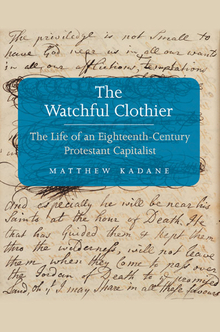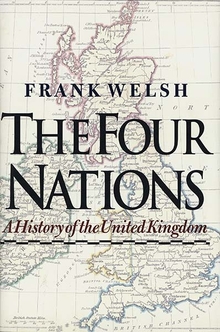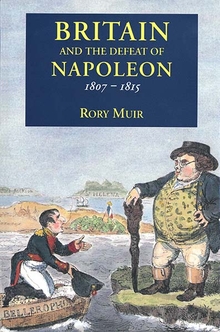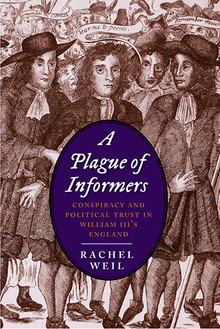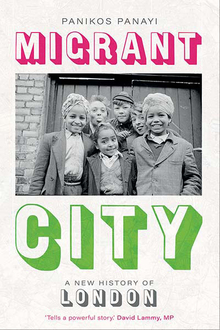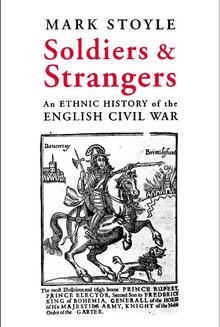Fire from Heaven
WARNING
You are viewing an older version of the Yalebooks website. Please visit out new website with more updated information and a better user experience: https://www.yalebooks.com
Life in an English Town in the Seventeenth Century
David Underdown
Out of Print
Underdown describes how Dorchester became a community with advanced systems of charitable giving, education, and assistance for the sick and needy. He paints a picture of Dorchester residents: Matthew Chubb, chief representative of the jovial, paternalist town oligarchy that preceded the Puritans; Chubb's friend Roger Pouncey, "godfather to the unruly and unregenerate of the town"; diarist William Whiteway, one of a group of Puritans who earnestly tried to reform their neighbors; and many other less gentrified men and women who spent their leisure time drinking and swearing, fornicating and repenting, striving to live up to the new ideals of their community or rejecting them with bitter anger and mocking laughter. Underdown's subtle and witty exploration of these characters and events casts a refreshing new light on a bygone era.
"A work that should not be missed by any student of the period. Rich in detail, gracefully written, and sensitive to diverse religious and cultural values, Fire from Heaven compellingly tells the story of the transformation of an unremarkable, backwater provincial town into a citadel of Puritan ideals and practices. . . . Underdown weaves a rich tapestry of life in Dorchester. . . . [He] brings the protagonists in this struggle alive in a way no historian has hitherto done."—Richard L. Graves, Church History
"Fire from Heaven is a case study of the west-county town of Dorchester, a proud and important community in the first half of the seventeenth century. The material and close reading of Dorchester's records are fascinating and give us insight into the lives of the forgotten people. This book offers a key into the mental world of some of the leading families of Dorchester. Yet this book is far more than a local history. By focusing on the efforts for godly reformation in Dorchester, and the resistance of such efforts, Underdown uses Dorchester as a microcosm of the struggles of Puritanism in early Stuart and Civil War England. This case study helps us to understand more about the underlying religious and social ruptures that led to the midcentury revolution. Underdown's study substantially adds to the debate on the nature of Puritanism. . . . David Underdown has produced a book that, while solidly researched and sophisticated in its analysis, is also elegantly and accessibly written. Both scholars of seventeenth-century England and a more general audience will learn from and appreciate this study."—Carole Levin, Journal of Modern History
"The best study of a seventeenth-century English provincial town yet written. A wealth of vivid detail and lively anecdotes brings to life the religious attitudes and conflicts of Dorchester residents. The book is an important contribution to the historical literature on grass-roots puritanism."—R. Malcolm Smuts, University of Massachusetts, Boston
"This is fascinating reading."—Val Hennessy, Daily Mail
"Underdown's marvelous book shows just how particular Dorchester was two centuries before Hardy."—Diarmaid MacCulloch, New Statesman and Society
"A gem of a book. . . . All fascinated by its strange twists will find much to ponder in Underdown's humane and lively study."—Roy Porter, Sunday Times
Exceptionally interesting and provocative. . . . Fire from Heaven is the story of a community torn between self-indulgence and self-discipline, lurching earnestly yet haltingly toward a more exalted state of civilization; its story thus not merely possesses universal implications but is especially pertinent to our own time and place."—Jonathan Yardley, Washington Post Book World
"[Underdown] show[s] us the citizens of Dorchester in marvelous detail. . . . Though the portrait of Dorchester is fascinating in itself, the author does not view it in isolation but connects it to contemporary English society. . . . Though he has written local history, he has also made a serious contribution to the historiography of the civil war, whose origins and meaning continue to be one of the hot topics in English history. This is a thoughtful, readable, enjoyable book."—Stephanie Martin, Wilson Library Bulletin
"By using the abundant original materials along with his exceptional knowledge of national affairs during the period, Underdown is able to blend local history and the wider scope of English affairs quite nicely. Most of all, he never forgets the human element in history. Readers are treated to a delightful narrative of the ebb and flow of Dorchester life during particularly troubled times. This work is a model of its kind; local history at its best. Essential for both undergraduate and graduate collections."—Choice
"[Underdown's] story of the birth of Dorchester's Puritan idealism, and how it was battered and compromised by the 1649 Revolution and the 1660 Restoration, is told with a masterly historian's poise."—David Underdown, Literary Review
"Fascinating . . . This is a very wise book, scholarly in its approach but immensely enjoyable reading. It will help to bring the debate about the causes of the Civil War back to reality."—J.H. Plumb, Financial Times Weekend
"Underdown's Fire from Heaven is well written and painstakingly researched. It offers a fresh view of both the godly reformation and the impact of national politics on a country town. . . . Fire from Heaven is a work for the intelligent layperson who is interested in history. . . . Yet even Tudor-Stuart historians can benefit from the insights of Underdown's work."—David B. Mock, History: Reviews of New Books
"This compelling study is not so much about the religious ideal as about the difficulties in translating that ideal in the face of the realities of small town life in early modern England. . . . Underdown presents [the inhabitants'] victories in vivid and concrete detail."—Paul Seaver, Religious Studies Review
"A remarkably vivid and readable account of the mental world of a Puritan community that will surely become a classic."—Roger B. Manning, American Historical Review
"Underdown exposes the workings of the town like a surgeon folding back an incision to reveal the vital organs."—Sebastian Faulks, Independent on Sunday
"The book teems with memorable characters. . . . Told with obvious relish and tremendous erudition, it is the story of seventeenth-century Dorchester, and of the rise and fall of a great Puritan crusade that made it, for a time, the best reformed town in England. . . . This is a marvellous book, one that offers by far the best account of life in an early modern English provincial town. The style is elegant, droll, and compelling. . . . A book about people, it is also a book for people."—Gordon DesBrisay, Canadian Journal of History
"David Underdown is helpful, instructive and entertaining."—Kate Kavanagh, Evening Standard
"This is a fascinating book. David Underdown has used the local records to home in upon those few decades in such a way that the place and the people leap again into vivid life. . . . Fire From Heaven is a brilliant exercise in historical reconstruction."—Penelope Lively, Daily Telegraph Weekend
"Vanished voices resound throughout David Underdown's book. . . . Fire from Heaven is a professional historian's attempt to make a moment from the past intelligible to the non-specialist. Underdown is too skilful and sensitive an interpreter to force a modern parallel, but his book challenges twentieth-century assumptions on the morality of welfare provision, the nature of punishment and the validity of the puritan vision."—Jonathan Keates, Observer
"Underdown is able to bring to life the people who inhabited the town which Thomas Hardy was to make famous in The Mayor of Casterbridge."—Virginia Quarterly Review
"Underdown's achievement is to have reconstructed this deeply revealing episode from contemporary records which are far from abundant and in doing so to have illuminated both the long forgotten inhabitants of Dorchester and also some central questions in 17th-century history."—Keith Thomas, Guardian
"David Underdown['s] painstakingly researched portrait of Dorchester, brings the 17th century Dorsetshire town vividly, almost rip-roaringly to life. . . . This is fascinating reading, not least because Underdown has rescued the lives of ordinary men and women from oblivion."—Val Hennessy, Daily Mail
"It is the achievement of this book to reveal the gulf which grew in Dorchester between the old, permissive culture of neighbourliness and good fellowship and the new Puritan code of discipline and restraint. . . . Professor Underdown seeks to show Dorchester society whole, and perhaps comes as close as may be to doing so."—Susan Brigden, London Review of Books
"[Underdown's] account of municipal government in seventeenth- century Dorchester is a brilliant resurrection of puritan revolution and counter-revolution."—Richard Gott, Guardian
"Professor Underdown has written a lively, thoughtful and important study of this country town, enlivened by a crowd of vivid stories."—Peter Clark, Times Literary Supplement
"David Underdown never fails to entertain as well as to inform, and in this elegantly constructed and gracefully written history of the modest county town of Dorchester he has provided a distinguished addition to the history of towns in the early modern period."—W. J. Sheils, Historian
Publication Date: July 29, 1992


